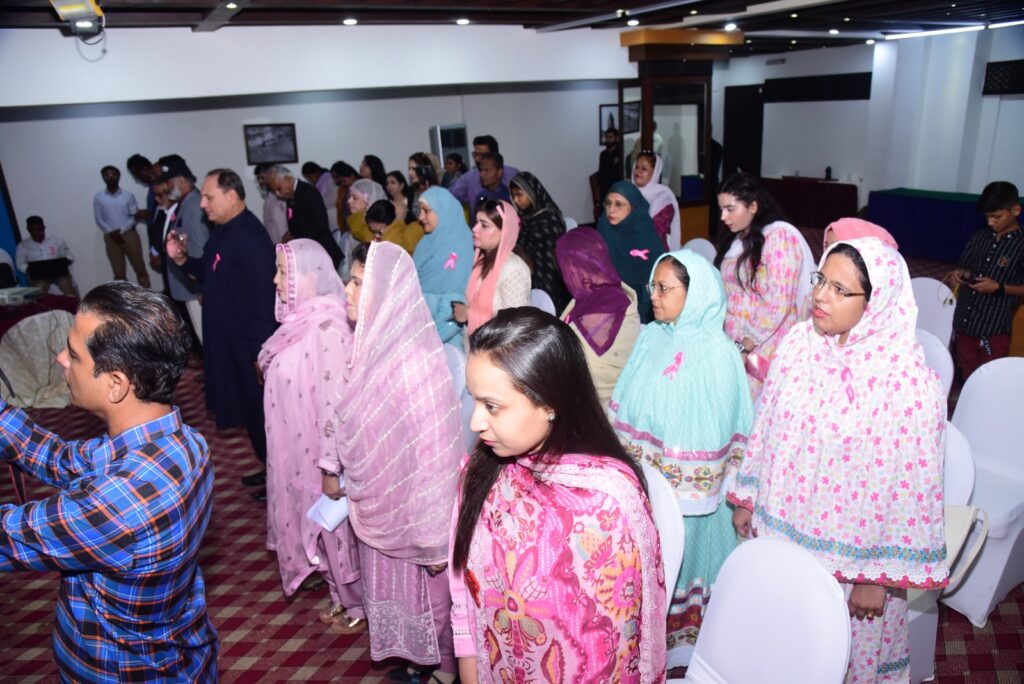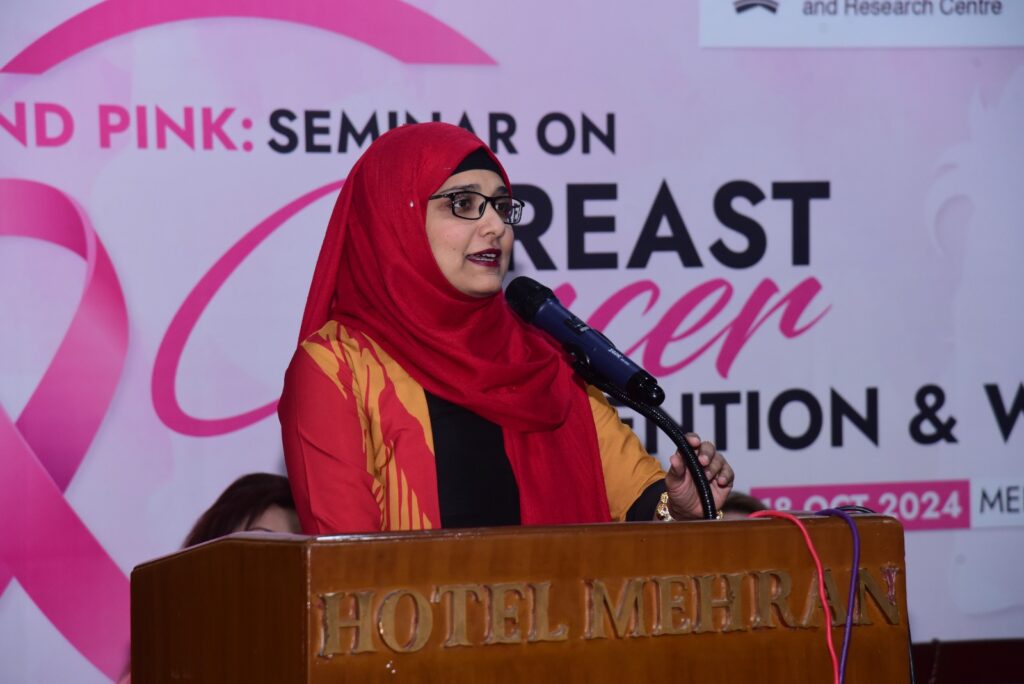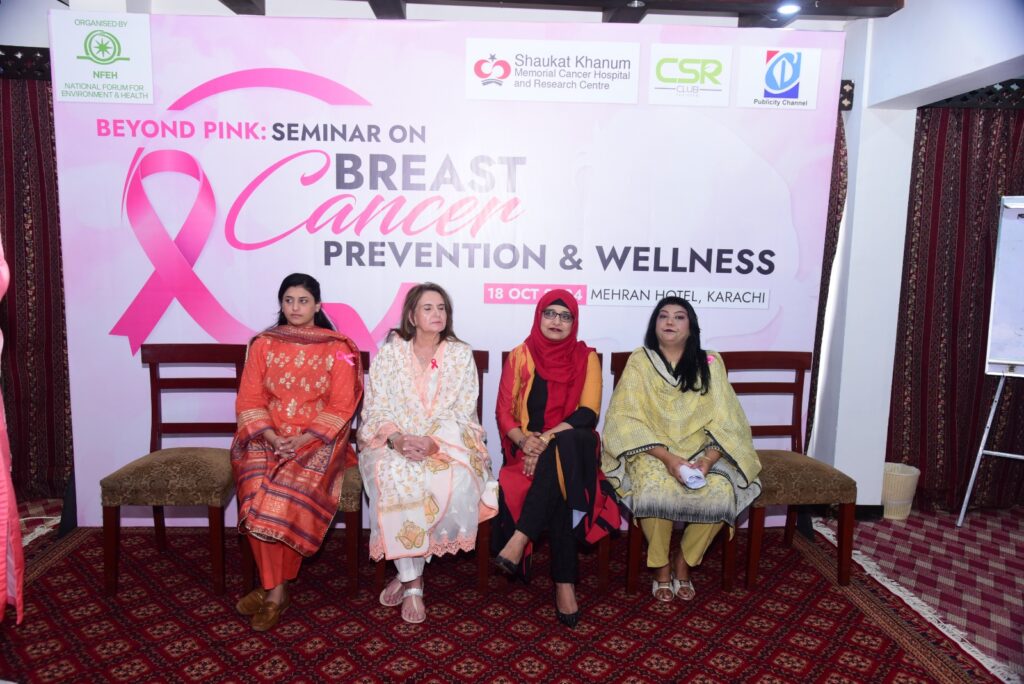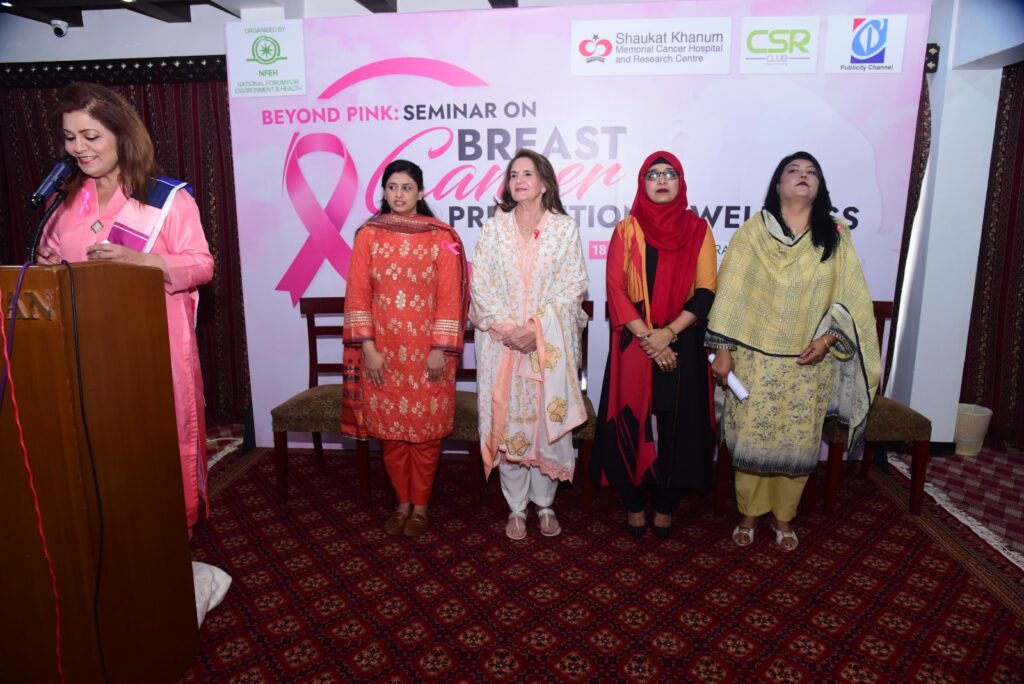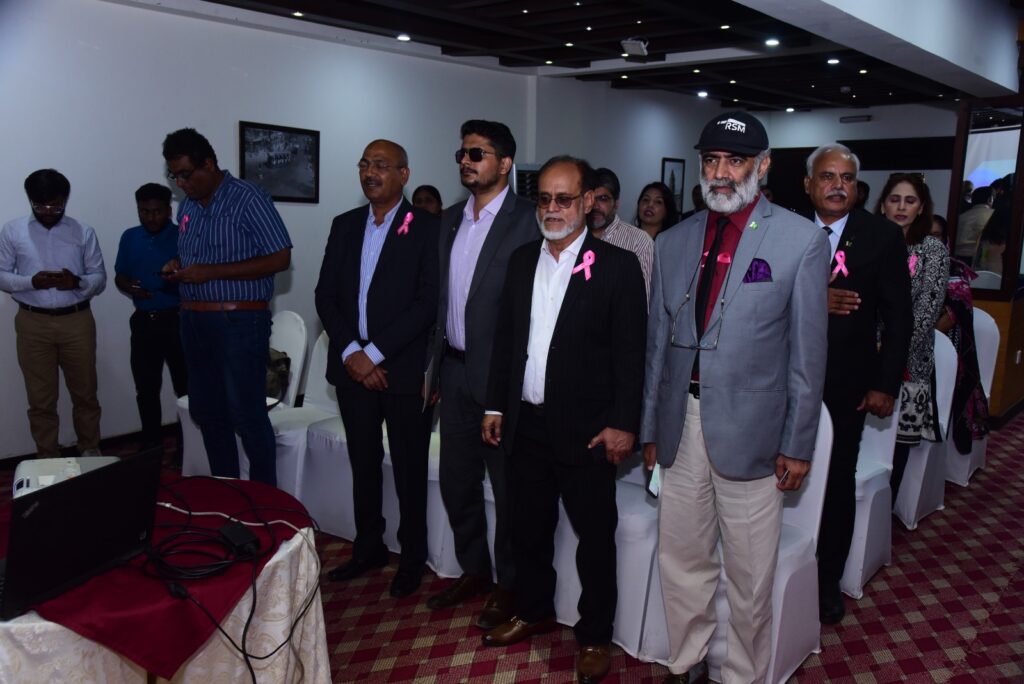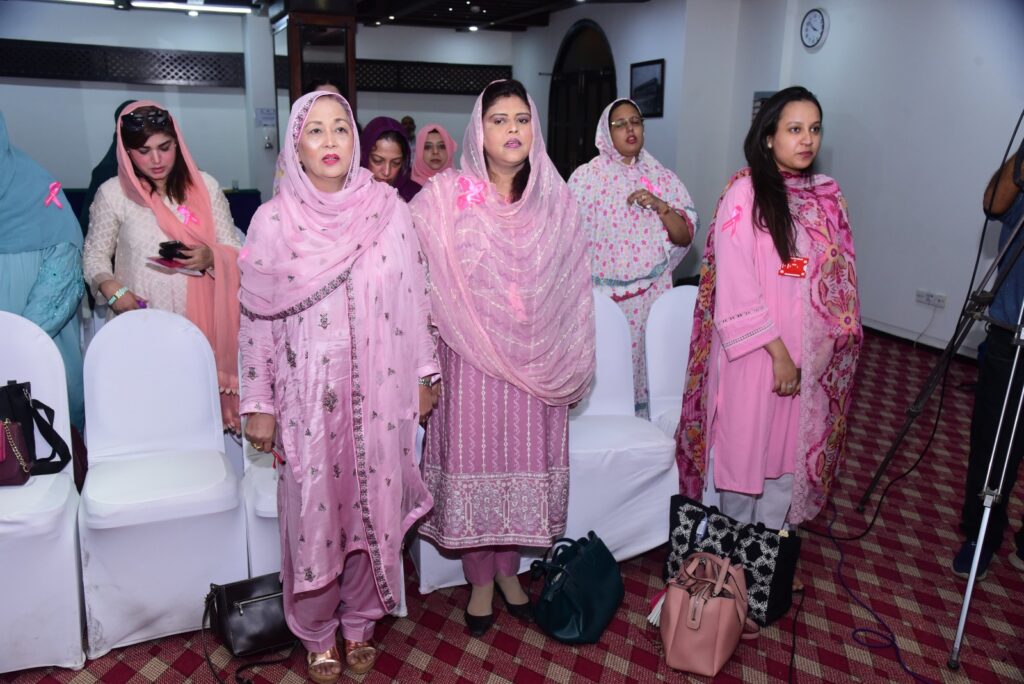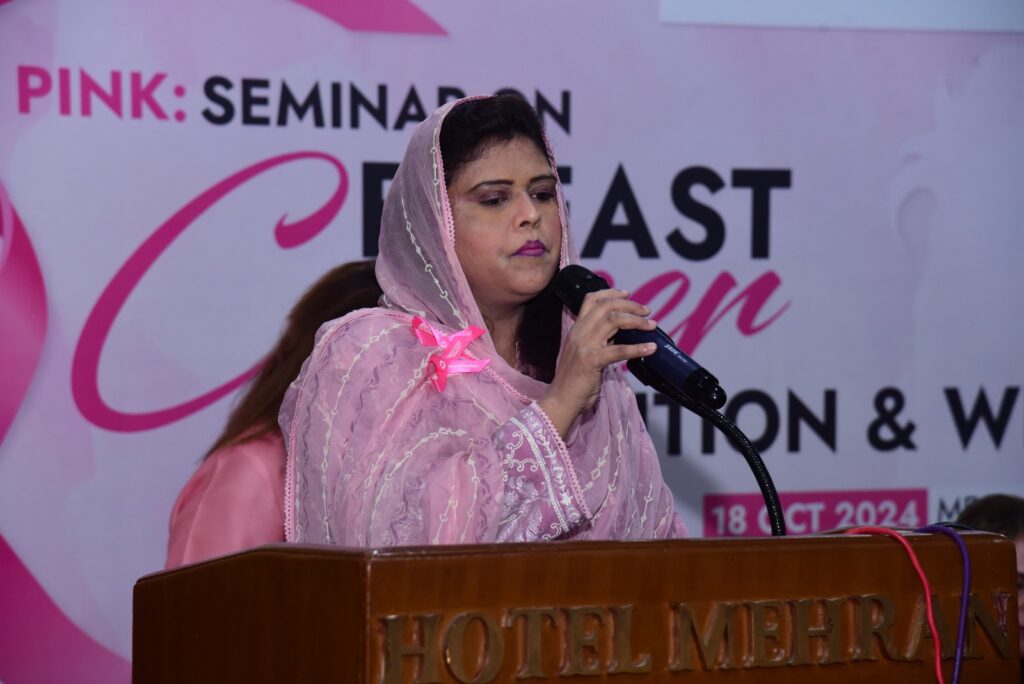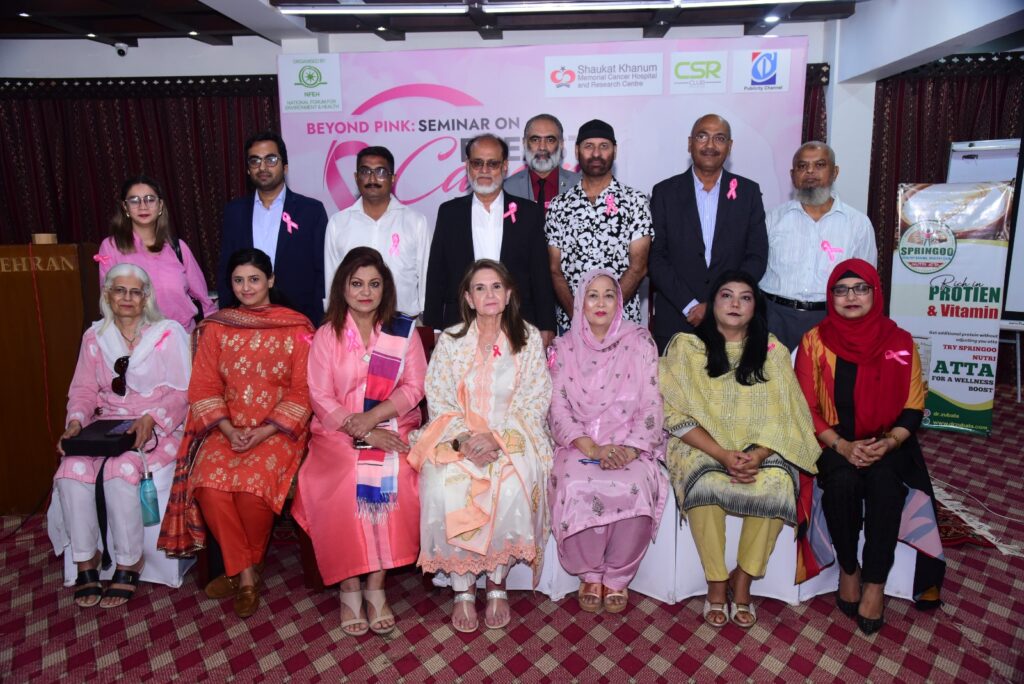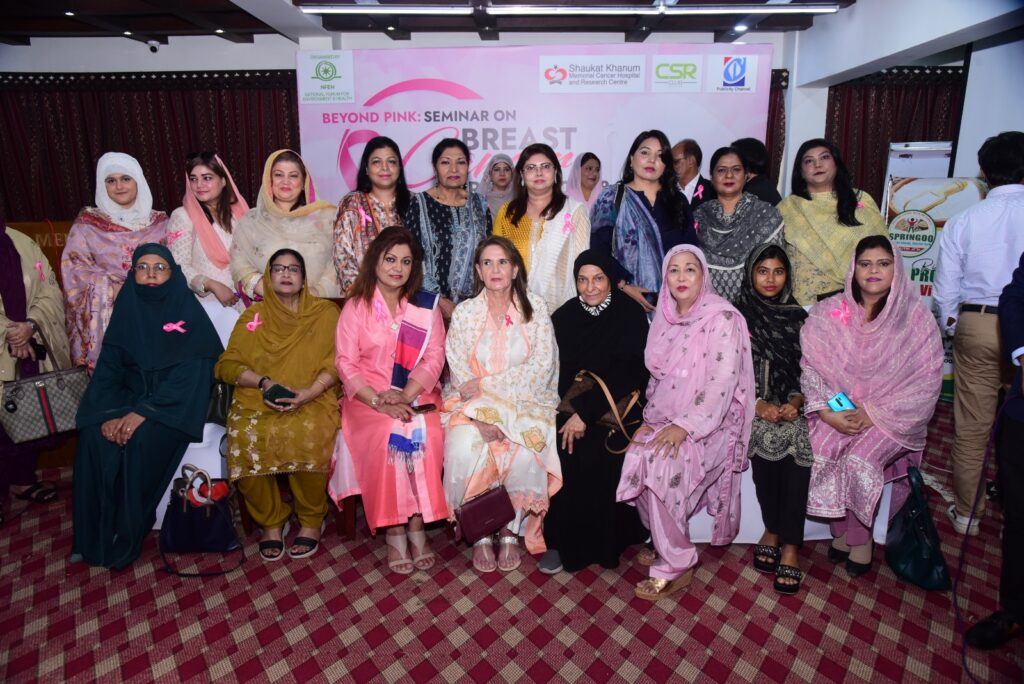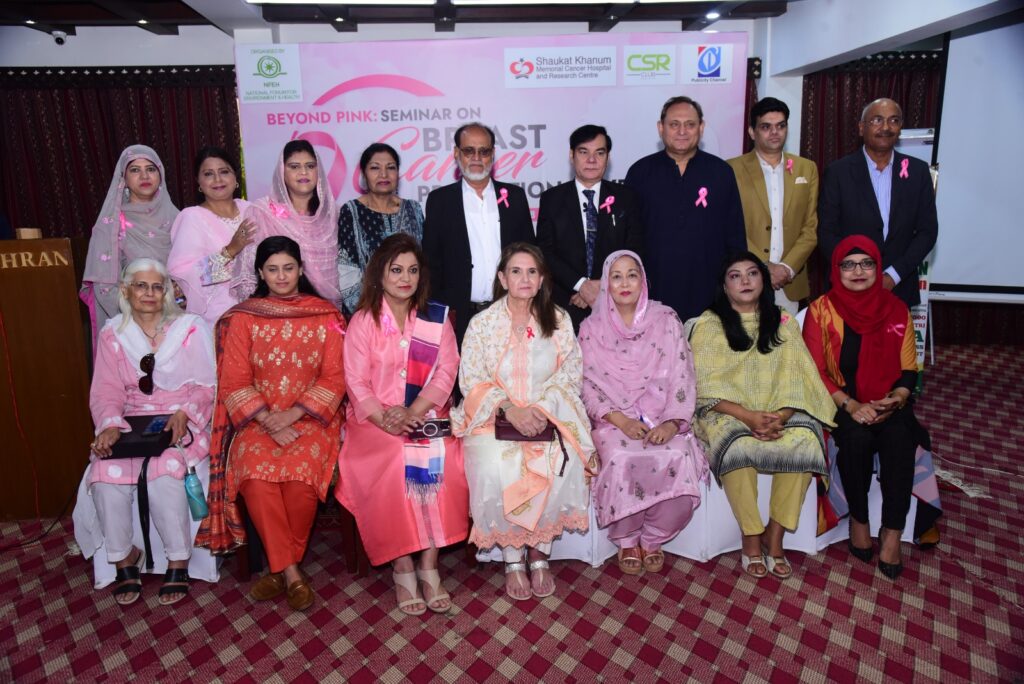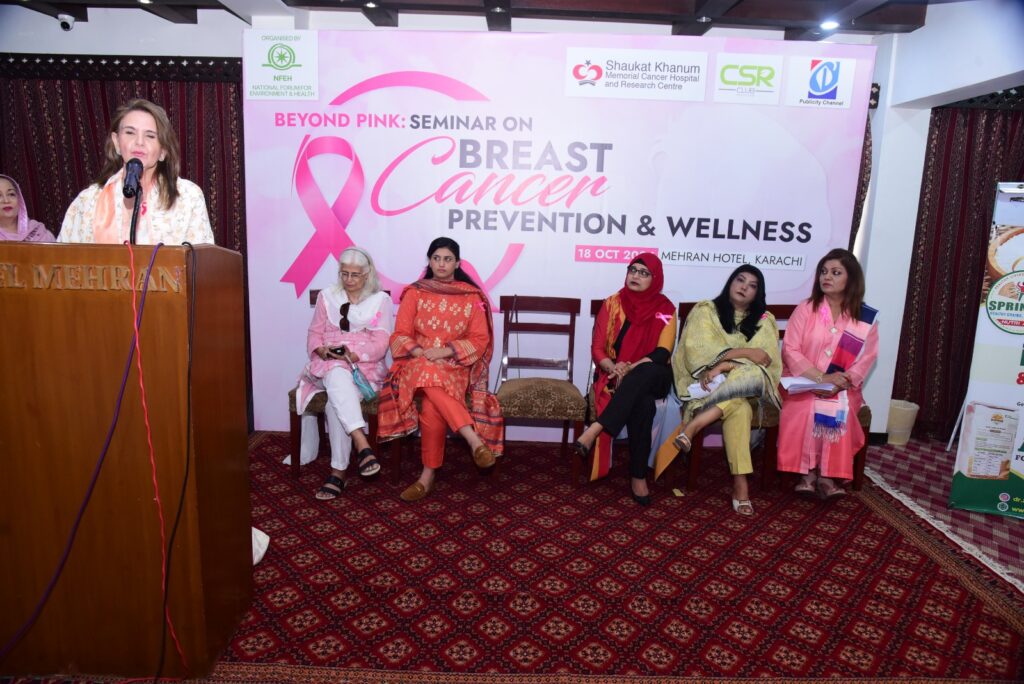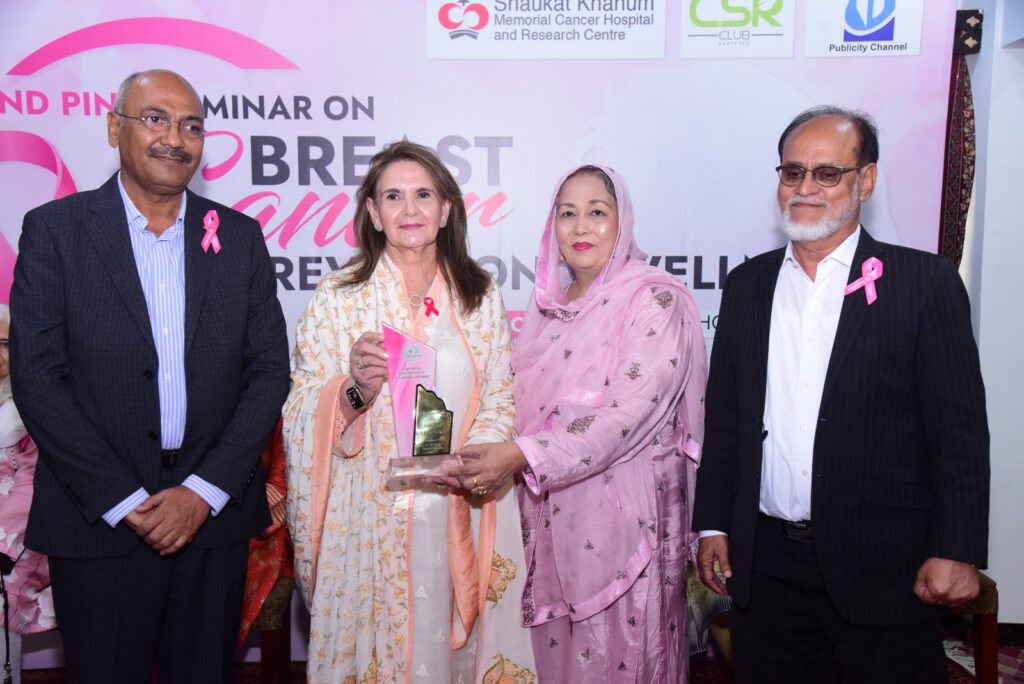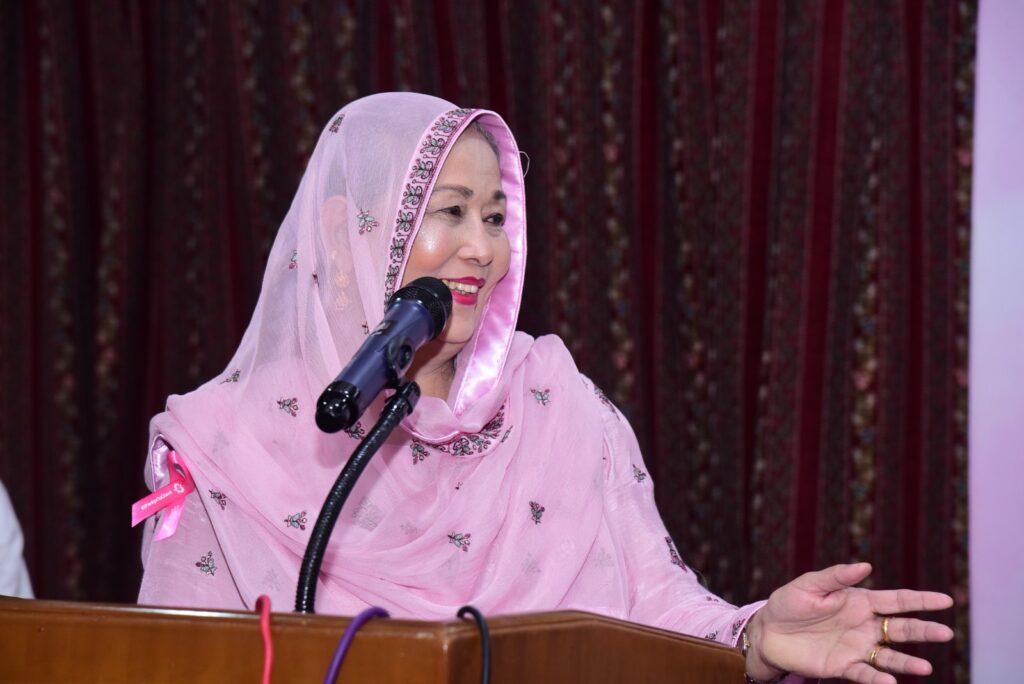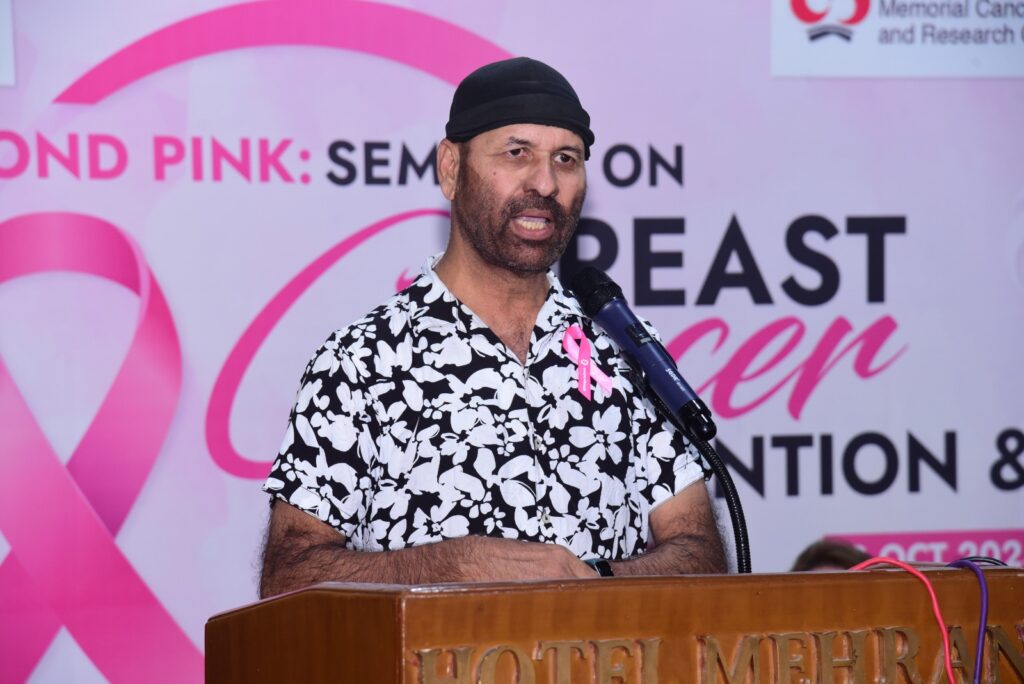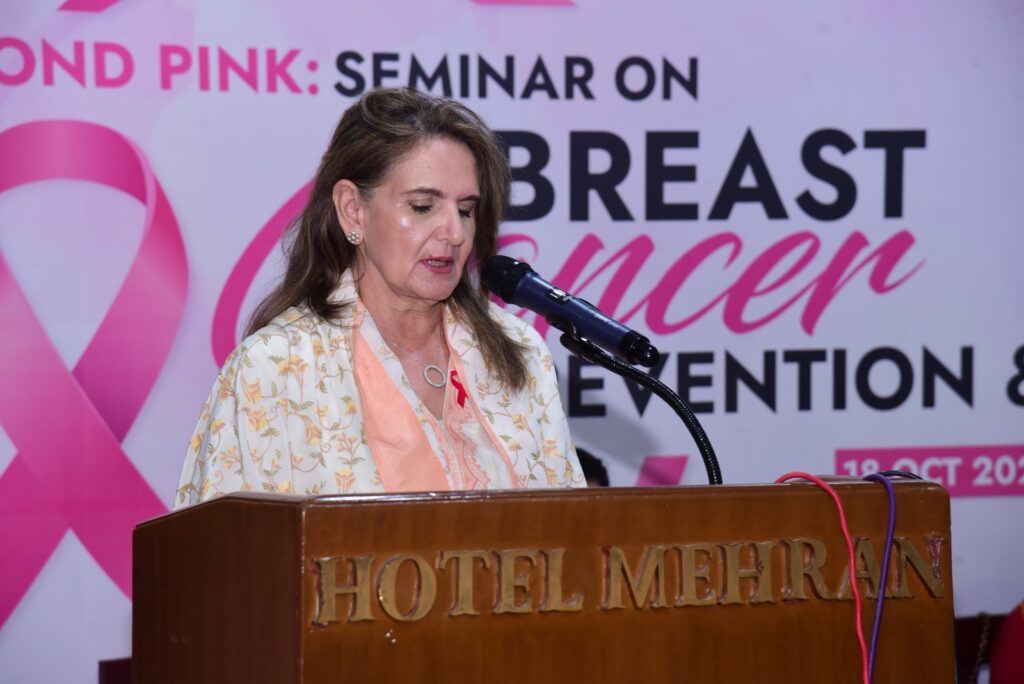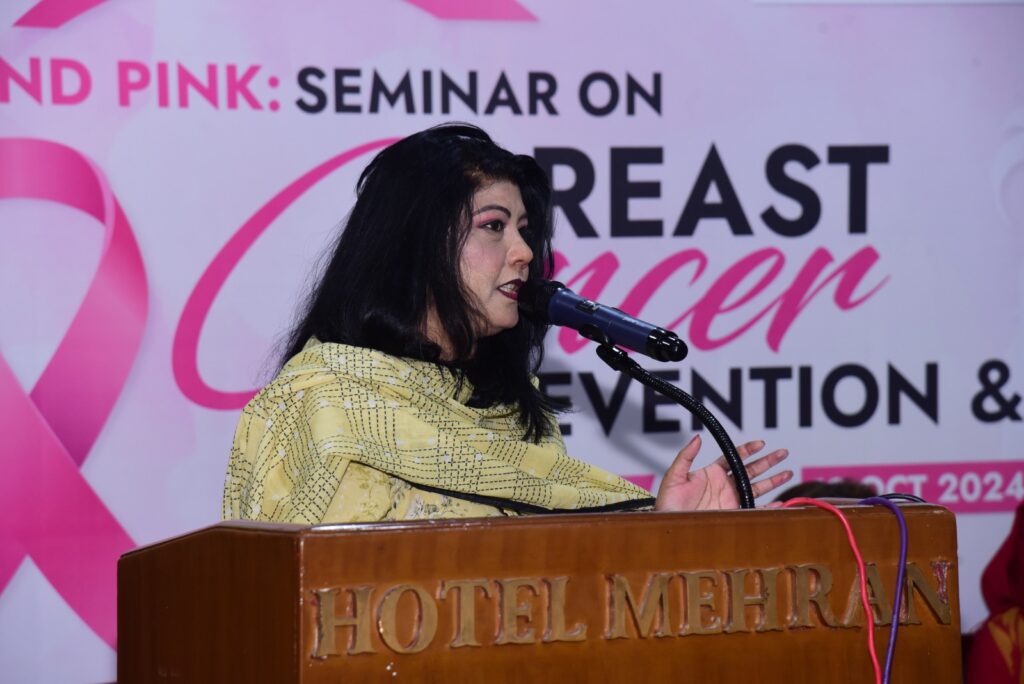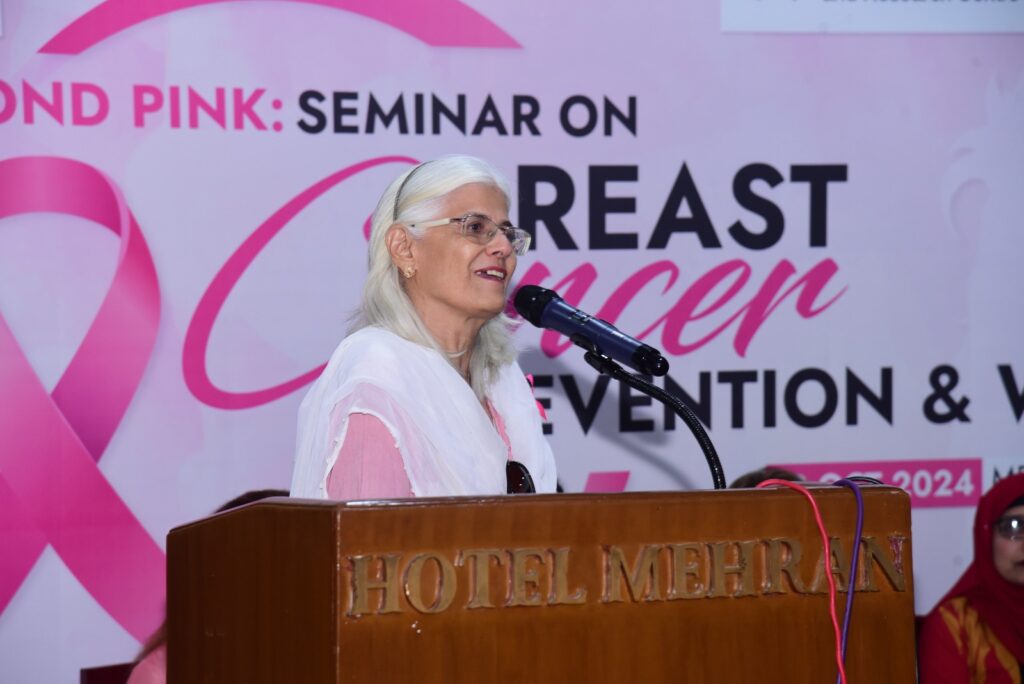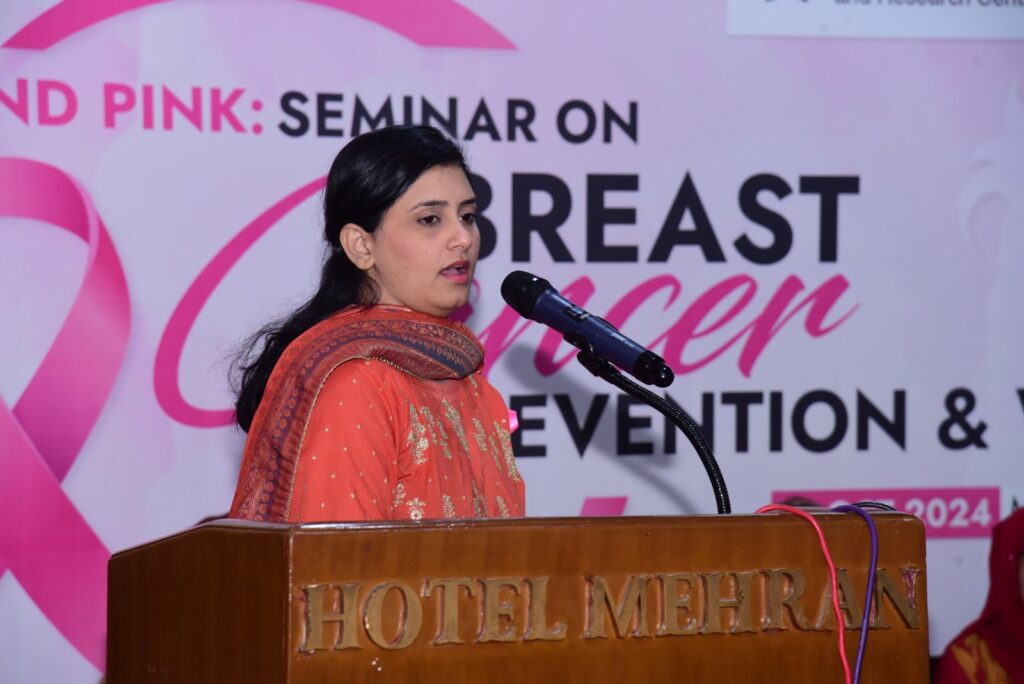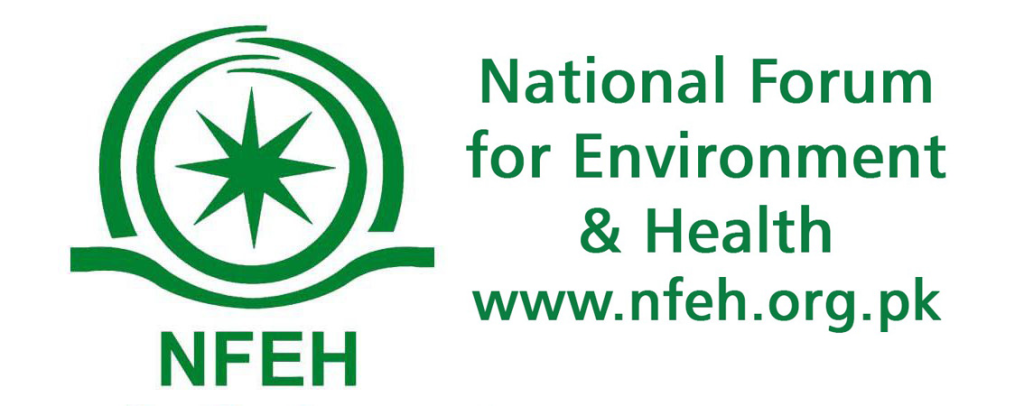NFEH seminar on breast cancer prevention, wellness
Former First Lady suggests mass-scale drive at neighbourhood level to effectively prevent breast cancer cases in Pakistan
Karachi
Former First Lady of Pakistan, Begum Samina Alvi, has said that a mass-level awareness campaign at the neighbourhood level should be launched to motivate Pakistani women to regularly self-examine their chests to detect any early symptoms of breast cancer to prevent cancerous diseases in Pakistan having highest incidence rate in Asia.
The Former First Lady of Pakistan put forth this suggestion while speaking as the chief guest at a seminar on “Breast cancer prevention and wellness”. The National Forum for Environment and Health (NFEH) organised the moot on the eve of the International Day against Breast Cancer commemorated every year on October 19.
Begum Alvi told the audience at the seminar that mammogram screening was an expensive procedure for a vast majority of women from low- and middle-income families to detect breast cancer. She said that Pakistan also had a serious dearth of specialised public healthcare facilities offering mammography procedures, so self-examination becomes the first and most effective line of defence to protect Pakistani women from breast cancer.
She said the proposed drive at the neighbourhood level to make women aware of the cancerous ailment should continue throughout the year instead of limiting the knowledge-based activity to October, which is globally celebrated as breast cancer awareness month.
She said that breast cancer shouldn’t be considered taboo by any section of society, as it should be treated as a serious medical issue whose early detection is necessary to protect the health of Pakistani women at a mass scale.
The Former First Lady said that psychological counselling should always be available for emotional support and complete rehabilitation of the patients and survivors of cancerous diseases.
She suggested that male members of society should also be fully aware of the fatal cancerous disease to play their part in protecting women in their families from breast cancer through early diagnosis and treatment.
“A mass-level collective effort is required against the alarming spread of breast cancer given that up to 100,000 new cases of the deadly disease are detected in Pakistan in a single year,” said Begum Alvi.
She reiterated her firm resolve to continue her efforts to build more specialised healthcare and rehabilitation facilities in Pakistan for cancer patients, differently-abled persons, and people suffering from mental health problems.
Dr Bushra Maham from Shaukat Khanum Cancer Hospital and Research Centre told the audience that developed countries in the West had been less affected by breast cancer because of better diagnosis and treatment facilities easily accessible to patients.
She said 22 per cent of the patients treated at the Shaukat Khanum Hospital suffered from breast cancer, which is the highest ratio of any cancerous disease whose cases came to the hospital.
She urged women above 40 to go for mammogram screening once every year for detection of cancerous cells, as the older females in Pakistan were at a greater risk of breast cancer.
Dr Zubala Yasir Lufti, an assistant professor at the Food Science & Technology Department of the University of Karachi, said that urban women’s healthy diet and lifestyle protect their health from cancerous diseases.
She urged patients with cancerous diseases to avoid sugar in their daily diet intake to minimise the chances of the regrowth of cancer cells in their bodies.
Ruth Zia, a lecturer at the College of Nursing at Sindh Government Hospital, said that exercise should be part of women’s daily routine to keep them healthy and fit.
Afia Salam, senior journalist and breast cancer survivor, said that Pakistani women should have complete autonomy to make emergency decisions for their health, as males shouldn’t have a dominant role in such instances.
She said that women having a family history of cancerous diseases should immediately go for genetic testing for early detection of breast cancer.
Ruqiya Naeem, NFEH Secretary General, urged the government to massively increase breast cancer diagnosis and treatment facilities, especially at major public hospitals, given the alarming spread of the fatal disease in Pakistan.
On the occasion, a special memento was presented to Begum Samina Alvi for her years-long efforts to spread mass awareness about issues concerning breast cancer, mental health problems, and the rehabilitation of special persons in Pakistan.
